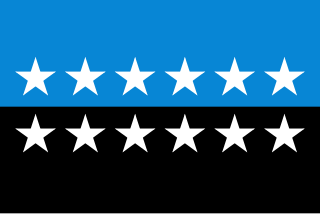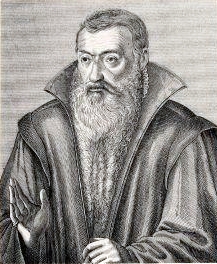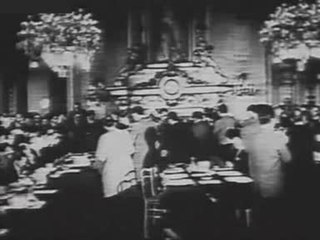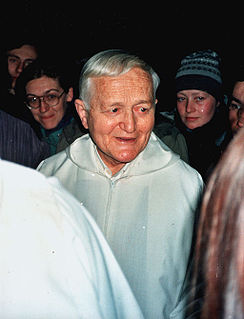External links
- (in German) Dr. Georg Jarzembowski Mitglied des Europäischen Parlaments, computer translation
- (in German) Preise bis 2006, computer translation
| This award-related article is a stub. You can help Wikipedia by expanding it. |
The Robert Schuman Prize for European unity was a prize awarded annually by the Hamburg Alfred Toepfer Foundation, in memory of former French Prime Minister, Robert Schuman. The award, first given in 1966, was discontinued in 2000.
The Robert Schuman Silver Medal for European Unity was awarded at the Robert Schuman Prize ceremony. Each year it was awarded to young people between the ages of 18 and 35 who had particularly distinguished themselves through efforts towards European harmony.
| This award-related article is a stub. You can help Wikipedia by expanding it. |

The European Coal and Steel Community (ECSC) was an organisation of six European countries created after World War II to regulate their industrial production under a centralised authority. It was formally established in 1951 by the Treaty of Paris, signed by Belgium, France, Italy, Luxembourg, the Netherlands, and West Germany. The ECSC was the first international organisation to be based on the principles of supranationalism, and started the process of formal integration which ultimately led to the European Union.

The European Union is a geo-political entity covering a large portion of the European continent. It is founded upon numerous treaties and has undergone expansions and secessions that have taken it from 6 member states to 27, a majority of the states in Europe.
Robert Schumann (1810–1856) was a German composer, music director and publisher of a trade paper.

Jean Omer Marie Gabriel Monnet was a French entrepreneur, diplomat, financier, administrator, and political visionary. An influential supporter of European unity, he is considered as one of the founding fathers of the European Union.

The Charlemagne Prize is a prize awarded for work done in the service of European unification. It has been awarded annually since 1950 by the German city of Aachen. It commemorates Charlemagne, ruler of the Frankish Empire and founder of what became the Holy Roman Empire, who resided and is buried in Aachen. Traditionally the award is given to the recipient on Ascension Day in a ceremony in the town hall of Aachen. In April 2008, the organisers of the Charlemagne Prize and the European Parliament jointly created a new European Charlemagne Youth Prize, which recognises contributions by young people towards the process of European integration. Patrons of the foundation are King Philippe of Belgium, King Felipe VI of Spain, and Henri, the Grand Duke of Luxembourg.

Jean-Baptiste Nicolas Robert Schuman was a Luxembourg-born French statesman. Schuman was a Christian Democrat political thinker and activist. Twice Prime Minister of France, a reformist Minister of Finance and a Foreign Minister, he was instrumental in building postwar European and trans-Atlantic institutions and was one of the founders of the European Union, the Council of Europe and NATO. The 1964–1965 academic year at the College of Europe was named in his honour.

Europe Day is a day celebrating "peace and unity in Europe" celebrated on 5 May by the Council of Europe and on 9 May by the European Union.

Sandra Kalniete is a Latvian politician, author, diplomat and independence movement leader. She served as Foreign Minister of Latvia 2002–2004 and as European Commissioner for Agriculture, Rural Development and Fisheries in 2004. Since 2009, she has served as Member of the European Parliament (MEP) for the European People's Party.

The University of Strasbourg in Strasbourg, Alsace, France, is a university in France with over 52,000 students and almost 3,300 researchers.
A supranational union is a type of multinational political union where negotiated power is delegated to an authority by governments of member states.

Nicholas William Bethell, 4th Baron Bethell was a British politician. He was a historian of Central and Eastern Europe. He was also a translator and human rights activist. He sat in the House of Lords as a Conservative from 1967 to 1999. He served as an appointed member of the European Assembly from 1975 to 1979, and as an elected Member of the European Parliament from 1979 to 1994, and from 1999 to 2003.

The Schuman Declaration is a statement made by French foreign minister Robert Schuman on 9 May 1950. It proposed to place French and West German production of coal and steel under one common High Authority. This organization would be open to participation of other Western European countries. This cooperation was to be designed in such a way as to create common interests between European countries which would lead to gradual political integration, a condition for the pacification of relations between them: "Europe will not be made all at once, or according to a single plan. It will be built through concrete achievements which first create a de facto solidarity. The coming together of the nations of Europe requires the elimination of the age-old opposition of France and [West] Germany".

Roger Schütz (1915–2005), popularly known as Brother Roger, was a Swiss Christian leader and monastic brother. In 1940 Schütz founded the Taizé Community, an ecumenical monastic community in Burgundy, France, serving as its first prior until his murder in 2005. Towards the end of his life, the Taizé Community was attracting international attention, welcoming thousands of young pilgrims every week, which it has continued to do after his death.

The period saw the first moves towards European unity as the first bodies began to be established in the aftermath of the Second World War. In 1951 the first community, the European Coal and Steel Community was established and moves on new communities quickly began. Early attempts at military and political unity failed, eventually leading to the Treaties of Rome in 1957.

The founding fathers of the European Union are 11 men officially recognised as major contributors to European unity and the development of what is now the European Union. All but one were from the Inner Six of the European Union.
The Alfred Toepfer Stiftung F.V.S. is a German foundation established in 1931 by the Hamburg merchant Alfred Toepfer. The foundation is committed to promoting European unification and ensuring cultural diversity and understanding between the countries of Europe.

The European Union (EU) uses a number of symbols, including the European Flag, Anthem of Europe, Motto of the European Union and Europe Day.
Frederick Lewis Schuman (1904–1981) was an American historian, political scientist and international relations scholar. He was a professor of history at Williams College for 32 years after he had taught at the University of Chicago, an analyst of international relations, and a social scientist, focusing on the period between World War I and World War II.

Dr. Alfred Carl Toepfer was a German entrepreneur, owner of the company Toepfer International and founder of the Alfred Toepfer Foundation. He helped shaped the original internal markets of the European Coal and Steel Community, and was a philanthropist known for his celebration of the arts, sciences, and nature.
Erin Schuman, born May 15, 1963 in California, USA, is a neurobiologist who studies neuronal synapses. She is currently a Director at the Max Planck Institute for Brain Research.